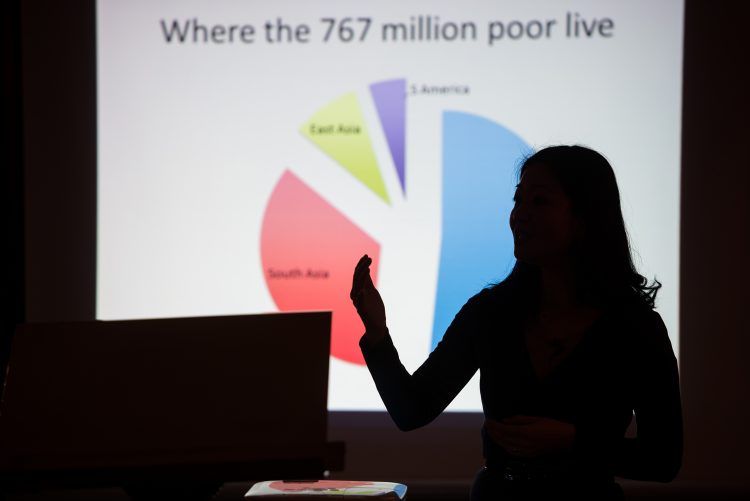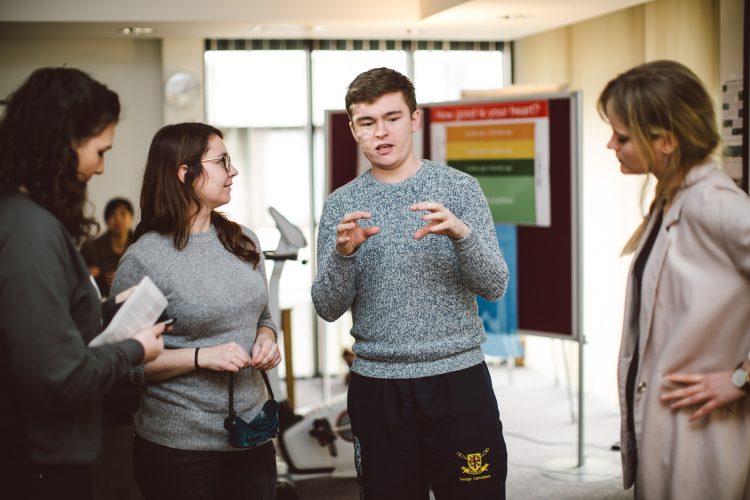Dr James Wilk
Associate Lecturer in Philosophy
Based at St Edmund Hall for half his adult life, philosopher and scientist James Wilk holds degrees from Oxford spanning a range of academic fields including not only philosophy, but also neuroscience, physiology, self-organizing complex systems, psychology, sociology, and social policy and intervention, as well as a degree in cybernetics from the former Institute of Cybernetics at Brunel University – the world’s leading centre for cybernetics at the time – where much of his scientific research was based for a decade.
Since returning to Oxford and the Faculty of Philosophy fifteen years ago, Dr Wilk has been continuing his philosophical and scientific research, which he is currently preparing for publication, and teaching philosophy at St Edmund Hall.
In parallel with his academic research and teaching at Oxford and elsewhere, Dr Wilk has pursued a clinical career in the mental health field as well as an advisory career in cybernetics and allied disciplines, pure and applied. In this latter capacity he has served as long-term adviser to the CEOs and top management of the world’s leading corporations, as well as the leaders of third-sector, governmental and multi-governmental agencies on both sides the Atlantic.
A lifelong Wittgenstein specialist, metaphysician and philosopher of mind, Dr Wilk has been teaching philosophy at the Hall and for a number of other Oxford colleges over the past decade and a half – particularly the Later Philosophy of Wittgenstein, the Philosophy of Mind, Metaphysics, Epistemology, the Philosophy of Science, the Philosophy of Psychology and Neuroscience (now the Philosophy of Cognitive Science), Philosophical Logic and Philosophy of Language, as well as a few other subjects (Ethics, Philosophy of Social Science, Early Modern Philosophy, etc. from time to time).
Although as an undergraduate, Dr Wilk had come to philosophy from mathematics, via Cantor to Frege and Wittgenstein, most of his research since then has been in metaphysics, epistemology, the philosophy of mind and action, philosophy of language, aesthetics and the philosophy of science, as well as in the philosophy of psychology, philosophy of neuroscience, and in the history and philosophy of psychoanalysis, psychiatry and cybernetics. He has also maintained a lifelong interest in the history of science and the history of ideas, particularly in relation to the philosophy of science.
One of the lessons he took from intellectual history, early on, was that most of the big leaps seem to have occurred historically in the No Man’s Land between philosophy and natural science. Armed with this conviction about ‘where the action is’, he found his philosophical research invariably led him into study and research within each of the scientific fields with which his conceptual inquiries shared a sufficiently long border, including inter alia neuroscience, cybernetics, complexity theory, semiotics, perceptual control theory, communication theory, psychology, psychiatry and psychoanalysis. He pursued these empirical studies in depth alongside his work in analytic philosophy, grounding his philosophical inquiries with training and research on the empirical side of the fence.
For example, in parallel with his academic work in philosophy and in the so-called ‘hard’ (because, of course, the easier) sciences, he also ended up an experienced clinician in the psychological field. However, he originally undertook his clinical work chiefly for the light it threw on his investigations into the nature and dynamics of mind, and as a scientist-practitioner in the consulting room he inquired into psychological change not only as a clinical psychologist but as a philosophical psychologist. His clinical work directly informed, and continues to inform, his work in both philosophy of mind and in cognitive science, and led to a number of promising advances in complexity theory and cybernetics.
Despite appearances, he insists his research interests and pursuits to date have not been wide-ranging in the least, and that, on the contrary, he has been single-mindedly pursuing solutions to a narrow range of fairly intractable, technical, richly interconnected metaphysical problems that just happen to lie across a plane forming a diagonal slice through a broad range of divers topics, both philosophical and scientific. The thrust of his work overall has been in radically re-conceiving the place of mind in nature, and along the way, the relationship between language and the world.
His recent and current philosophical research has gone into an ambitious metaphysical treatise ‘in the grand (i.e. 18th-Century) manner’, nearing completion, propounding a novel, alternative philosophical cosmology. Built from the ground up, beginning with an alternative semantics and a number of innovations in philosophical logic, it (rightly or wrongly) attempts to turn on their head a gamut of 18th-Century metaphysical presuppositions that remain largely unquestioned in contemporary philosophy (except, notably, by some philosophers more-or-less hostile to this kind of systematic metaphysical enterprise in the first place). The work is radically empiricist, pluralist and non-reductionist, and seeks dramatically to extend the reach of science while shedding it of some of its unwarranted pretensions. He says that “it’s entirely heretical, but sufficiently orthodox in approach to be recognizably so.”
Dr Wilk is also putting together a monograph on his own (neo-Baconian/Vichian) verum factum approach to the philosophy of science, focusing particularly on the implications of – and for – some of the newer sciences. It mainly comprises a number of published and unpublished, invited academic lectures on the subject he has given in recent years.
An accomplished clinician, teacher, supervisor and researcher in the psychiatric field, Dr Wilk has held senior clinical and scientific positions in mental health for many years.
He is Visiting Lecturer in Clinical Psychology, Department of Psychology, School of Life & Medical Sciences, University of Hertfordshire, where he has been teaching psychotherapy and clinical epistemology on the doctoral (DClinPsy) programme since 2012.
He also serves as Doctoral Thesis Advisor (since April 2013) at Aalto University, Helsinki, Finland, supervising PhD work in Philosophy and Psychology, as well as informally advising postgraduate candidates in philosophy and psychology elsewhere in the Nordics.
Throughout his clinical career, while treating ambulatory patients both in outpatient clinics and in his private practice, his chief clinical and research interest in psychiatry has nonetheless remained the inpatient treatment of serious mental illness, including psychosis (particularly schizophrenia), severe personality disorder, and autism spectrum disorder.
His clinical practice, teaching and research have long focused on developing more effective forms of treatment (he has been particularly influential in pioneering more effective new forms of brief psychotherapy), as well as focusing on clinical epistemology (in assessment, diagnosis and treatment), psychoanalysis, and the professional training of psychotherapists, which he has conducted, designed and directed over many years.
Dr Wilk is a Clinical Fellow, AAMFT (the highest, and longest established, internationally recognised professional qualification in the field of systemic psychotherapy) and a longstanding Member of the American Psychological Association (Major Field: Clinical Psychology).
During his sabbatical year Dr Wilk was a visiting Fellow in Psychiatry, Dept. of Psychiatry, New York Presbyterian Hospital in 2009-10, and in 2008-09 he was Erikson Institute Visiting Scholar, Erik H. Erikson Institute for Education and Research at the renowned Austen Riggs Center, Stockbridge Massachusetts.
Since 2009 he has been a member of both the Working Group on the History of Psychoanalysis and the Richardson Research Seminar in the History of Psychiatry in the DeWitt Wallace Institute for the History of Psychiatry, Dept. of Psychiatry, Joan and Sanford I. Weill Medical College, Cornell University, New York, and for the past decade he has been a Member of both the Faculty Psychotherapy Conference and the Faculty Group and Family Therapy Conference of the Division of Psychotherapy, Dept. of Psychiatry, Mt Sinai School of Medicine, New York.
From 2010-12 Dr Wilk served as Senior Adviser leading a team of the top Chartered Psychologists in the Division of Sport Sciences at the English Institute of Sport, working to improve the medal chances of Team GB in the 2012 Olympics across 70% of the events, as well as advising in other areas of elite sport at the international level.
Dr Wilk serves (Jan 2017 to Dec 2019) on the Board of Directors, Section V, Division 39 of the American Psychological Association, the leading scientific and professional organisation representing psychology in the United States, whose Members are qualified doctoral level psychologists. The APA’s Division 39, influential in transforming the landscape of American psychoanalysis, has long been one of the largest, most powerful associations of psychoanalytic professionals in the world, and Section V seeks to extend its influence outside the consulting room to develop new clinical services in community mental health and beyond.
Dr Wilk worked with the King’s Fund, London (the National Health Service policy think-tank) at top level for several years. Since that time, his extensive advisory work on both sides of the Atlantic with not-for-profit and public sector leaders has focused principally on health care delivery and health policy, addressing a wide range of operational, organisational, tactical, strategic and policy issues spanning the fields of health care delivery, public health and related areas globally, from the organisation of emergency departments in Brooklyn to the organisation of health ministries across Africa.
In 2009 he was a David Rogers Health Policy Medalist, Weill Medical College, Cornell University, and in recognition of “his career-long leadership in working to improve the health of the public,” Dr Wilk was elected a Fellow of the New York Academy of Medicine (Psychiatry Section), where he was appointed to serve from 2007-2017 as Senior Advisor to the President.
Dr Wilk was elected a Fellow of the Cybernetics Society (UK), for his work in applying cybernetic understanding and analysis to psychological and behavioural change in clinical psychology, psychiatric practice, organisational behaviour and society.
He is Research Director of Interchange Research, an international, independent research enterprise and influential think-tank which has been devoted for over thirty years to the scientific study of the phenomena of ‘directiveness’ – including control, intervention, evolution, adaptation, purpose, complexity, and design – in nature and in human affairs, and above all the study of the dynamics of change.
Applying the fruits of his career-long, original scientific research in the cybernetics of change in systems of any kind, Wilk serves as long-term adviser to the CEOs and other C‑level decision makers of leading corporations, financial institutions, public sector bodies and third sector organisations, particularly in the areas of technology, energy, health care, media, telecoms and financial services.
Wilk has spent more than 20 years at the forefront of digital transformation, across the full range of new technologies, from big tech (where his work in digital has mainly been centred) and the development of international de facto industry standards, to disruptive tech startups.
A serial tech innovator, adviser & entrepreneur in the digital space, his own ventures have included the world’s first successful ad-funded free mobile network and a multiple award-winning, pioneering mobile advertising platform, which went from the back of an envelope in a meeting in his living room in 2005, through four funding rounds backed by the likes of Sofinnova and Goldman Sachs, to a fast-growing global business with over 4 million customers and some thousands of successful advertising campaigns for leading international brands, in less than six years. He and his team are currently developing a platform designed to radically change the way online knowledge-based content is managed, validated, and monetized.
In December 2012 he completed his work as Senior Advisor to the Chairman of an international think-tank reporting directly to the Prime Minister of one of the eurozone countries, addressing the fallout from the global financial crisis; his recommendations received Prime Ministerial and all-party backing and have been implemented in full.
A Freeman of the City of London and Liveryman of the Worshipful Company of Management Consultants (one of the City of London’s Livery Companies, incorporated by Royal Charter, a member of the Financial Services Group of Livery Companies), Wilk has long played a leading role in initiatives to improve transparency, reduce conduct risk and increase compliance in financial services, particularly in the wake of the 2008 financial crisis, in both a professional and pro bono capacity.
Wilk’s numerous pro bono activities over the years currently include serving on the Board of Advisors (of which he was a founding member) of Library for All, a global non-profit initiative, which has built a digital library to deliver quality educational materials to children in developing countries. Aimed at the 250 million children worldwide who are not learning to read and write despite enrolment in school, LFA’s mission is to make knowledge accessible to all, equally. LFA cites studies suggesting that if all students in low-income countries had basic reading skills by the time they finished primary school, 171 million people could be lifted out of poverty.
Dr Wilk has been invited to lecture widely on his work in psychology, philosophy, and cybernetics. He has written extensively on his research, mostly monographs and highly technical theoretical treatises for which he never seems, these days, to have the time to find a publisher.
Where next?




Mathematics & Philosophy

Physics & Philosophy

Dr James Wilk
MA Oxf, MSc Oxf, PhD, FCybS
- Associate Lecturer in Philosophy
- Member of the American Psychological Association
- Clinical Fellow AAMFT
- Fellow of the New York Academy of Medicine